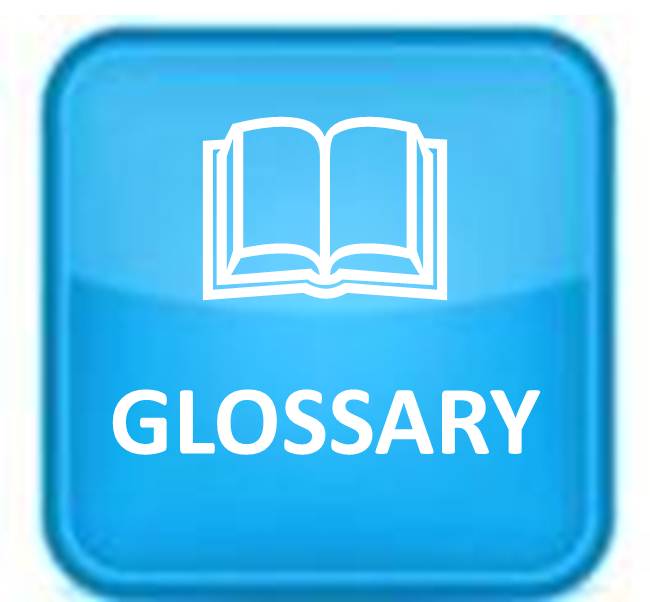
Describe the basiccharacteristics and functions of good beginnings and endings.
Plan effectiveintroductions and conclusions.

 Please preview the words before watching the video.
Please preview the words before watching the video.
1. confidence booster赞美
2. Signal words信号词;标志词
3. establish rapport建立友好关系
4. trustworthy ['trʌs(t)wɜːðɪ]adj. 可靠的;可信赖的
5. firsthand knowledge第一手的资料
6. rhetorical question反问;设问;修辞性疑问句A question to which no answer is required: used esp for dramatic effect. An example is Who knows? (with the implication Nobody knows) 不必回答, 只为加强语气及效果的反问
7. ponder ['pɒndə] vt. 仔细考虑;衡量
8. survey question调查问题
9. ubiquity[juː'bɪkwətɪ]n. 普遍存在;到处存在
10. golden tan金棕色(晒得很健康的肤色)
11. glamorous ['glæmərəs]adj. 迷人的,富有魅力的
12. overexposure [,əʊvəɪks'pəʊʒə]n. 感光过度;[摄] 曝光过度
13. prematurely ['premətʃəlɪ]adv. 过早地;早熟地
14. brain tumor脑瘤,脑癌;
15. attention-grabbing引人注目的
16. quotation [kwə(ʊ)'teɪʃ(ə)n]引语,引文,语录
17. authority [ɔː'θɒrɪtɪ]n. 权威;权力;当局
18. Pericles ['perikli:z]n. 伯里克利(古雅典政治家)
19. orator ['ɒrətə]n. 演说者;演讲者;雄辩家;原告
20. peers [pɪrs]n. 平辈,同事(peer的复数)
21. intriguing ['ɪntriːgɪŋ; ɪn'triːgɪŋ]adj. 有趣的;迷人的
22. startling ['stɑːtlɪŋ]adj. 令人吃惊的
23. overdo [əʊvə'duː]vi. 做得过分;表演过火
24. captivating['kæptɪveɪtɪŋ]adj. 迷人的;有魅力的
25. blown away反响震惊
26. psychologist [saɪ'kɒlədʒɪst]n. 心理学家,心理学者
27. realism ['rɪəlɪz(ə)m]n. 现实主义;实在论;现实主义的态度和行为
28. notorious [nə(ʊ)'tɔːrɪəs]adj. 声名狼藉的,臭名昭著的
 Please watch the video.
Please watch the video.
 Homework
Homework
Please write a beginning part of the speech for your own subtopic.
Topic of 2019 FLTRP Cup English Speaking Competition: My big story in 2049.

 Study the speech and immitate the speaker.
Study the speech and immitate the speaker.
 Questions to be discussed in class:
Questions to be discussed in class:
Questions:
How did Hillary describe this campaign?
What expressions did she use to show her gratitude to all kinds of people? List at least 5 sentences.
Who did she mentioned in her speech? Why?
Translate the sentences:
We owe him an open mind and the chance to lead.
To Barack and Michelle Obama, our country owes you an enormous debt of gratitude.

Notes and examples:
1. Why a good beginning?
A good beginning is halfdone.
First impressions areimportant.
An excellent confidencebooster.
2. Functions of openings
(1)Reveal the topic and preview the body of the speech
(2)Gain the attention and interest of the audience
(3)Connect with your audience
(4)Build credibility
3. But How?
(1)Express gratitude
lMy fellow citizens,lI stand here today humbledby the task before us, grateful for the trust you have bestowed, mindful of thesacrifices borne by our ancestors. I thank President Bush for his service toour nation, as well as the generosity and cooperation he has shown throughoutthis transition. (BarackObama, Inaugural Speech, 2009)
(2)Introduce history and backgroundinformation
lFivescore years ago, a great American, in whose symbolic shadow we stand, signedthat Emancipation Proclamation. This momentous decree cameas a great beacon light of hope to millions of Negro slaves who had been searedin the flames of withering injustice. It came as a joyous daybreak to end thelong night of their capacity. But one hundred years later, the Negro is stillnot free. (Martin Luther King, I Have a Dream, 1963)
(3)Asking rhetorical questions
I have a question: Who here remembers when theyfirst realized they were going to die? I do, I was a young boy,and my grandfather had just died, and I remember a few days later lying in bedat night trying to make sense of what had happened.( Stephen Cave, TED: The 4 Stories We Tell Ourselves about Death,2013 )
(4)Setting suspense
Each of you has agift. What kind of gift is it? It’s not a Christmasgift or a birthday gift. It’s not some special talent or skill. It’s a gift that could save a life—maybe morethan one. If you decide to give it, you lose nothing. Some people bury their gift. Others burn it.All but one of you who completed myquestionnaire would gladly receive the gift, but only 20 percent of you havedecided to give it. lThis gift is the donation of your vital organs whenyou die.
(5)Begin with a Quotation
Honorable judges, ladiesand gentlemen: lKiplingsaid:" East is east, and West is West, and never the twain shallmeet!" But now, a century later, they have met. lThey have met in business.They have met in education. They have met in the arts.
(6)Startle the Audience
As Ispeak today, a silent killer isstriking somewhere in China. Controllable but incurable, the silent killer is asymptomless disease. You can have it for years and never know until it fellsyou. As many as 300 million Chinese have this disease, and more than half a million will die fromit this year. What is this silent killer? Not cancer. Notdiabetes. Not heart disease. It is hypertension—high-blood pressure.
(7)Tell a Story
The other day my aunt paidme a visit. She was overjoyed. "I got the highest mark in the mid-termexamination!" she said. Don't be surprised! My aunt is indeed astudent; to be exact, a college student at the age of 45. 第九届“21世纪杯”全国英语演讲比赛冠军——洪晔
(8)Use humor
I’m a little nervous,because my wife Yvonne said to me, she said, “Geoff, you watch the TED Talks.”
I said, “Yes, honey, I love TED Talks.”
She said, “You know, they’re like, reallysmart, talented.”
I said, “I know, I know.”
She said, “They don’t want, like, the angryblack man.”
So I said, “No, I’m gonnabe good, Honey, I’m gonnabe good. I am.” (Geoffrey Canada, TED: OurFailing Schools. Enough is Enough, 2013)
(9)Use facts and statistics
Theme: Tourismand Ecology: Learning through Travel
Honorable judges, ladiesand gentlemen, good morning.lFirst of all, let me takethis chance to present to you a set of data that I hope won’t bore you sincethe source is China Daily.lChina’stourism revenue last year reached 500 billion RMB, an increase of 10.5 percentfrom the year before, and comprised more than 5% of China’s GDP. According toexperts, this number will grow to 8% in the coming ten years and more than 40million jobs will be created.lAs a student majoring ineconomics, I can’t be more sensitive to the essential meanings behind thesenumbers. They mean progress, prosperity, employment and stability.(第八届“21世纪杯”全国英语演讲比赛季军梁萌,2002)


